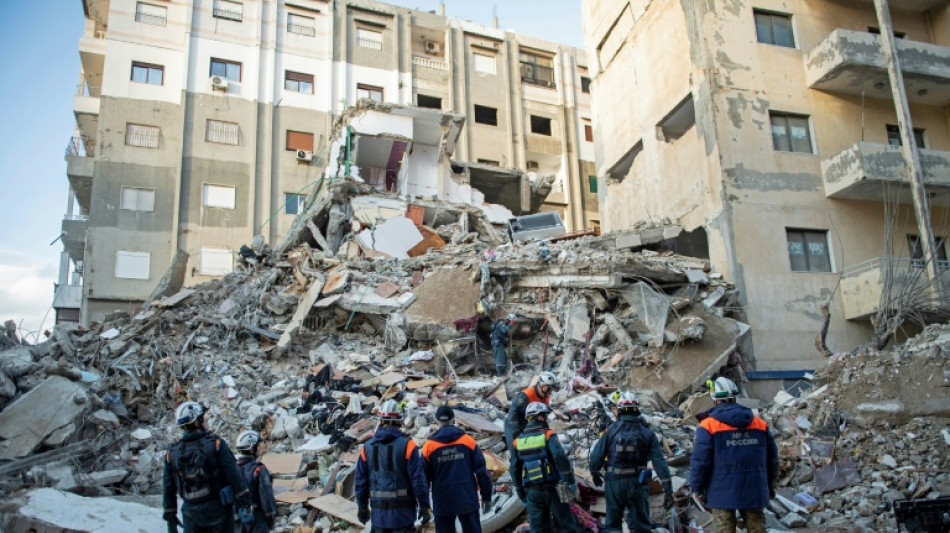
-
 Scandic Trust Group strengthens sales network with First Idea Consultant
Scandic Trust Group strengthens sales network with First Idea Consultant
-
Kolisi 100th Test 'no distraction' for Erasmus' South Africa

-
 Teetering Belgian government given more time to agree budget
Teetering Belgian government given more time to agree budget
-
Merz backs EU plan to protect steel sector from Chinese imports

-
 New Zealand make Scotland changes after Barrett brothers' injuries
New Zealand make Scotland changes after Barrett brothers' injuries
-
'Roy of the Rovers story' -- Farrell handed Ireland debut for Japan Test

-
 Stones backs Man City team-mate Foden to pose England dilemma for Tuchel
Stones backs Man City team-mate Foden to pose England dilemma for Tuchel
-
Djokovic to face Alcaraz in ATP Finals groups

-
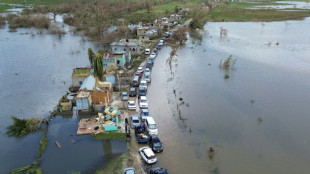 Facing climate 'overshoot', world heads into risky territory
Facing climate 'overshoot', world heads into risky territory
-
Springbok skipper Kolisi to play 100th Test against France

-
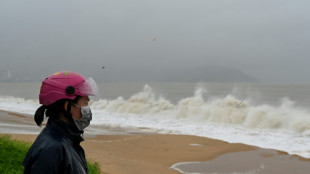 Typhoon Kalmaegi hits Vietnam after killing 140 in Philippines
Typhoon Kalmaegi hits Vietnam after killing 140 in Philippines
-
Bank of England leaves rate unchanged before UK budget

-
 Germany recall Sane, hand El Mala debut for World Cup qualifers
Germany recall Sane, hand El Mala debut for World Cup qualifers
-
India thump Australia to take 2-1 lead in T20 series
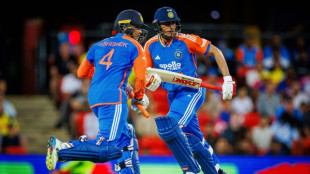
-
 Cameroon's Biya, world's oldest president, sworn in for 8th term
Cameroon's Biya, world's oldest president, sworn in for 8th term
-
Flick holding firm on Barca high line despite defensive woes

-
 Battered US businesses eye improved China trade at Shanghai expo
Battered US businesses eye improved China trade at Shanghai expo
-
France opt for Le Garrec as Dupont replacement for 'best team ever' South Africa
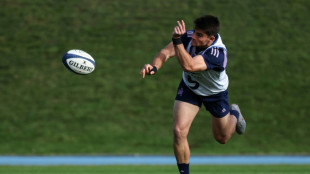
-
 Drugmaker AstraZeneca profit jumps as US business grows
Drugmaker AstraZeneca profit jumps as US business grows
-
'Vibe coding' named word of the year by Collins dictionary

-
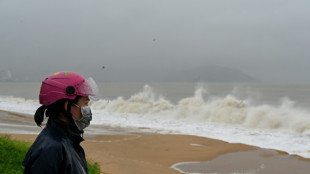 Vietnam evacuates thousands from coast ahead of Typhoon Kalmaegi
Vietnam evacuates thousands from coast ahead of Typhoon Kalmaegi
-
European stocks fall after gains in Asia, US
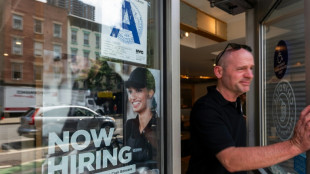
-
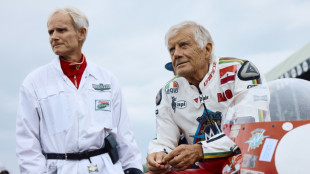 MotoGP legend Agostini admires Marc Marquez's 'desire to win'
MotoGP legend Agostini admires Marc Marquez's 'desire to win'
-
Nepal searches for avalanche victims
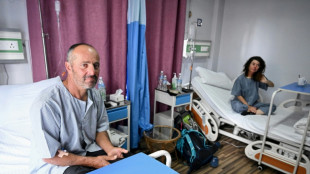
-
 Hezbollah rejects any negotiations between Lebanon and Israel
Hezbollah rejects any negotiations between Lebanon and Israel
-
Chapman blitz leads Black Caps to tight T20 victory over West Indies
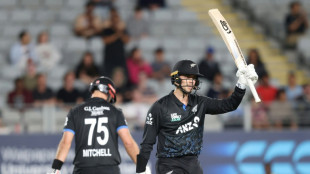
-
 France urges EU to sanction Shein platform
France urges EU to sanction Shein platform
-
France opt for Le Garrec as Dupont replacement for South Africa Test

-
 Turmoil in tiaras at Miss Universe pageant in Thailand
Turmoil in tiaras at Miss Universe pageant in Thailand
-
Probe into Thales defence group looking at Indonesian contract

-
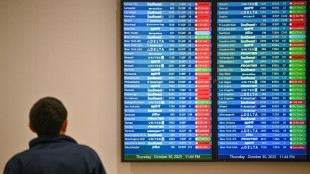 US to cancel flights as longest govt shutdown drags on
US to cancel flights as longest govt shutdown drags on
-
Home in Nigeria, ex-refugees find themselves in a war zone
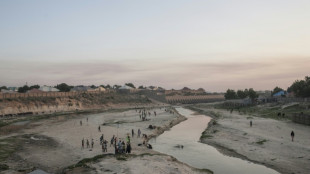
-
 Doncic's Lakers hold off Wembanyama's Spurs, Blazers silence Thunder
Doncic's Lakers hold off Wembanyama's Spurs, Blazers silence Thunder
-
For Turkey's LGBTQ community, draft law sparks existential alarm

-
 Musk's $1 trillion pay package to face Tesla shareholder vote
Musk's $1 trillion pay package to face Tesla shareholder vote
-
Tonga rugby league star out of intensive care after seizure

-
 Argentine ex-president Kirchner goes on trial in new corruption case
Argentine ex-president Kirchner goes on trial in new corruption case
-
Dams, housing, pensions: Franco disinformation flourishes online
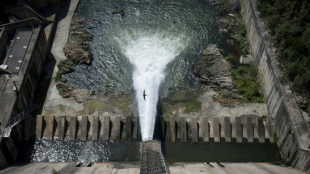
-
 Endo returns as Japan look to build on Brazil win
Endo returns as Japan look to build on Brazil win
-
Franco captivates young Spaniards 50 years after death
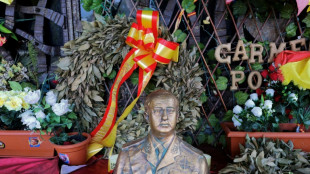
-
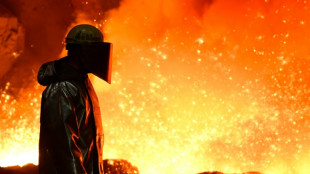 German steel industry girds for uncertain future
German steel industry girds for uncertain future
-
IPL champions Bengaluru could be sold for 'as much as $2 billion'

-
 Budget impasse threatens Belgium's ruling coalition
Budget impasse threatens Belgium's ruling coalition
-
New Zealand ex-top cop admits to having material showing child abuse, bestiality

-
 BoE set for finely balanced pre-budget rate call
BoE set for finely balanced pre-budget rate call
-
Australian kingpin obtains shorter sentence over drug charge

-
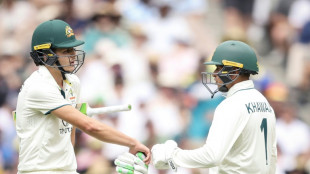 Weatherald's unenviable Ashes task: fill giant hole at top left by Warner
Weatherald's unenviable Ashes task: fill giant hole at top left by Warner
-
Ovechkin first to score 900 NHL goals as Capitals beat Blues

-
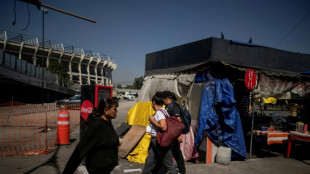 On Mexico City's streets, vendors fight to make it to World Cup
On Mexico City's streets, vendors fight to make it to World Cup
-
Asian markets bounce from selloff as US jobs beat forecasts
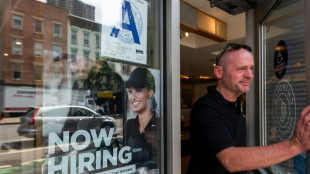

Why first 72 hours are crucial for Turkey-Syria quake rescues
Time was running out for survivors buried in the rubble of the earthquake in Turkey and Syria, as search efforts near the crucial 72-hour mark, a rescue response expert said Wednesday.
More than 90 percent of earthquake survivors are rescued within the first three days, said Ilan Kelman, a professor of disasters and health at University College London.
But that number can vary significantly depending on the weather, aftershocks and how quickly rescue teams and equipment can arrive at the scene -- all factors which are currently going against efforts in Turkey and Syria.
Over 11,200 people have been killed and thousands more injured after the earthquake struck southeastern Turkey and neighbouring Syria at 04:17 am (0117 GMT) on Monday.
With the 72-hour window closing early Thursday morning, Kelman told AFP why this timeframe is so important.
- Injuries, temperature, water -
"Generally, earthquakes do not kill people, collapsing infrastructure kills people," said Kelman, who has published research on quake rescue responses.
The most pressing factor is getting medical attention to people crushed under collapsed buildings before "their bodies fail" or they bleed out, he said.
Weather is also a key factor, and "it is completely against us" in Turkey and Syria, Kelman said.
The quake-hit regions have suffered through freezing temperatures as well as rain and snow since Monday.
"This very sadly means that hypothermia is possible, and people are probably unfortunately perishing due to the weather," Kelman said.
Those who do manage to survive the cold and their injuries still need food and water.
Without water, many people "will start dying at the three, four, five day mark," Kelman said.
Aftershocks, which hit without warning in the days after an earthquake, can further collapse buildings, posing "a huge and frightening risk" to both survivors and those trying to rescue them, he added.
The quake-hit regions have been shaken by relentless aftershocks, including a massive 7.5 magnitude tremor on Monday.
- Getting help to the scene -
Kelman said that normally "the vast majority of survivors are brought out within 24 hours by local teams, often using no more than their hands or a shovel."
Dozens of nations have pledged to send search and rescue teams as well as relief supplies to Turkey and Syria.
But the quake occurred in "a remote area, in a conflict zone, which is very difficult to get into," Kelman said.
It generally takes at least 24 hours for international rescue teams to arrive, get set up and start working.
"At that point, a good number of the people who could have survived have already perished," Kelman said.
For areas stricken by conflict near the Syrian border, access is trickier still.
"And as far as I've seen, rescue teams have not even fully assessed many of the areas in the main conflict zones, or many of the temporary settlements for displaced people," Kelman said.
- How to find survivors? -
Once on the scene, there are a range of ways that rescue teams can find earthquake survivors, including dogs which sniff through rubble.
A particularly famous team of quake rescue dogs from Mexico is on its way to Turkey, Kelman pointed out.
Robots and drones are also increasingly being used to get into small spaces too dangerous for humans.
Once a survivor is found, rescuers must decide how best to get them out.
Huge equipment such as cranes may be needed to lift slabs of collapsed buildings.
Or sometimes it is necessary to amputate a limb "which is crushed under a pillar or a piece of masonry," Kelman said.
- Before the 72 hours starts -
Kelman emphasised that "ultimately, a successful rescue operation starts decades before the earthquake to try to stop the infrastructure collapsing in the first place".
"If we would see levels of investment in disaster prevention that we are seeing in disaster response, we would not be in this situation."
S.AbuJamous--SF-PST




